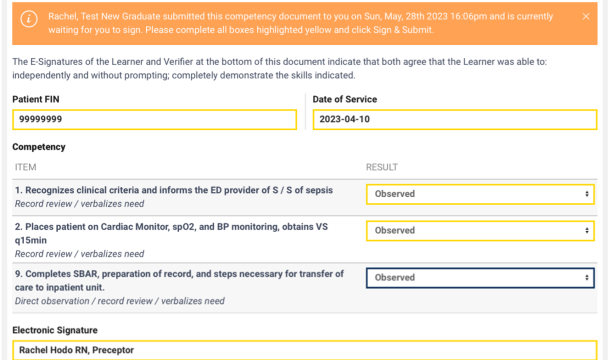Measure and Communicate: Return on Investment
In the context of the healthcare industry, particularly in Emergency Departments (ED), the need for adequately preparing nurses to work independently is of paramount importance. The Emergency Department is a fast-paced and high-stress environment where split-second decisions can mean the difference between life and death. Therefore, it's crucial to have well-prepared nurses who can confidently and competently handle the challenges that arise.
However, the issue that arises is the high turnover rate among Emergency Department nurses. High turnover rates can be attributed to a variety of factors, including the demanding nature of the work, long hours, burnout, and potentially inadequate preparation during the orientation period. This turnover not only creates a constant need for hiring and training new nurses but also affects the overall quality of patient care and the work environment.
In an environment where cost-consciousness is a significant concern, convincing hospital leaders and administrators to invest in improving nurse orientation can be challenging. Often, the immediate financial impact takes precedence over long-term benefits, which can include reduced turnover, improved patient outcomes, and enhanced nurse satisfaction. Educators who understand the critical role of proper orientation in nurse retention and patient care must effectively communicate these benefits to leadership.
A simple, traditional checklist approach combined with a fixed number of weeks for orientation may not be sufficient to adequately prepare nurses for the complexities of independent practice in the ED. Clinical judgment skills are essential in this context, as nurses must be able to assess situations rapidly, make informed decisions, and act swiftly. These skills are honed through experience and guidance, which the orientation period should aim to provide.
To address these challenges, an orientation tracking system can be implemented. This system involves several components:
- Data Management of Learners and Preceptors: This involves tracking the progress of each nurse during their orientation period, including the skills they are developing and the areas where they need further improvement. It also involves monitoring the performance and effectiveness of the preceptors who guide and mentor the new nurses.
- Evaluations of Orientation Shifts: Regular evaluations during the orientation shifts help identify strengths and weaknesses in each nurse's clinical judgment skills. These evaluations can be both quantitative and qualitative, providing a comprehensive understanding of the nurse's progress.
- Curriculum: A well-structured curriculum should be in place for the orientation period. This curriculum should encompass both theoretical knowledge and practical application, focusing on critical thinking and decision-making in high-pressure situations.
- Outcomes: Tracking outcomes is essential to measure the effectiveness of the orientation process. This includes evaluating the performance of nurses after they transition to independent practice and assessing their ability to handle the demands of the ED.
- Leadership Portal: A leadership portal serves as a central hub where ED leaders can access data and insights about the orientation process. This evidence-based information can help leaders make informed decisions regarding operational strategies, resource allocation, and improvements to the orientation program.
By implementing such an orientation tracking system, healthcare institutions can work toward reducing turnover rates and ensuring that nurses are adequately prepared for independent practice. It aligns with the broader goals of enhancing patient care, improving nurse satisfaction, and fostering a positive and effective work environment in the Emergency Department.

Topics
Popular Articles

Preceptor Rescue

Version 1.5 of Orientation Tracking
How can we help?
saving...